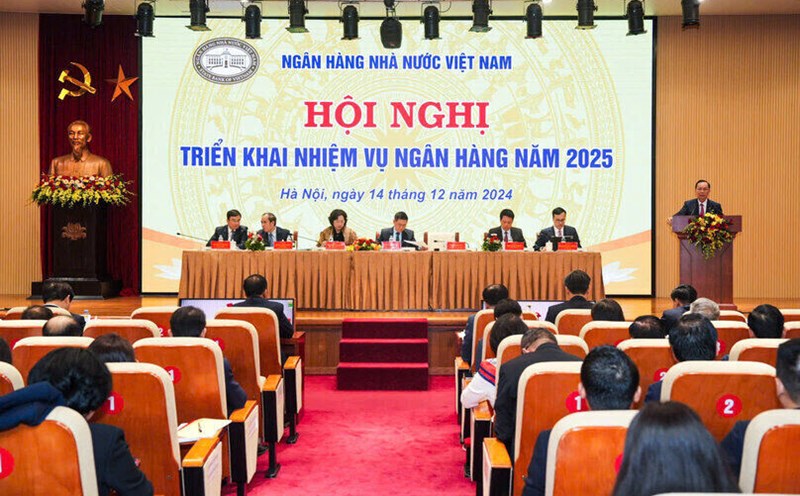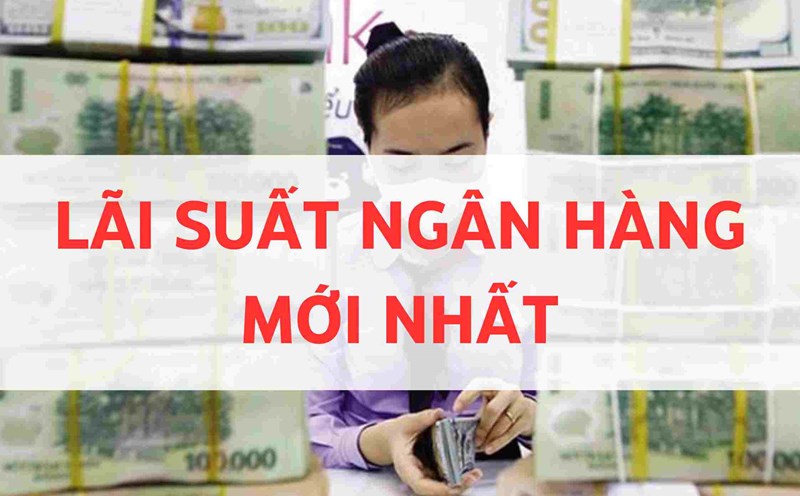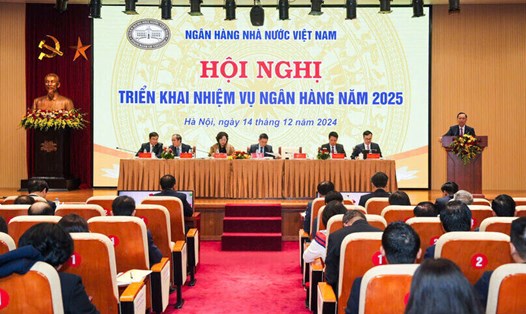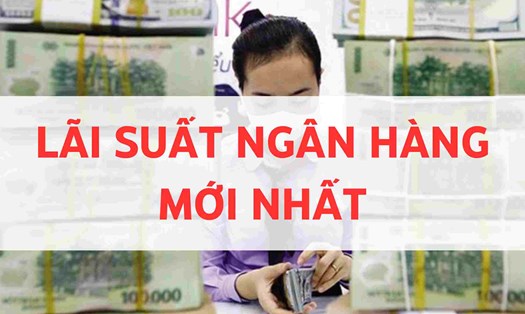On December 14, the State Bank of Vietnam held a conference to deploy banking tasks in 2025. Deputy Prime Minister Ho Duc Phoc attended and directed, highly appreciating the efforts of the entire banking sector in maintaining stable interest rates, supporting credit growth, restructuring weak banks and ensuring liquidity.
The Deputy Prime Minister emphasized that the banking industry needs to continue to closely monitor global economic developments to have timely and appropriate solutions, coordinate monetary and fiscal policies, and ensure system safety.
He suggested promoting the development of digital banking and electronic payments, enhancing transaction security, providing capital to support small and medium enterprises, and promoting green production and consumption models. At the same time, it is necessary to control inflation well, handle bad debts, and restructure weak banks.
In addition, the Vietnam Bank for Social Policies is emphasized as an important tool in ensuring social security, requiring effective investment. The banking sector must also improve inspection work, prevent violations, and ensure transparency and equality in operations.
The conference demonstrates the banking industry's determination to achieve sustainable development goals and effectively support the economy by 2025.
Looking back at 2024, the world economy grew slowly and unevenly, inflation in countries cooled down more clearly after a period of monetary tightening and falling oil prices, central banks lowered interest rates, and commodity and currency markets fluctuated strongly due to the uncertainty of the global economy. The domestic economy grew positively, inflation was controlled in line with the set goals. Compared to other countries in the world, Vietnam is a bright spot in controlling inflation, stabilizing the macro economy, contributing to attracting FDI capital.
However, Vietnam has a large openness, so it faces many difficulties and challenges when the world economy's recovery is not yet sustainable, inflation risks still exist, resilience is limited, it must both adapt to the external situation and solve internal problems, consequences left over from previous years (COVID-19 pandemic; in 2023 the economy will face many difficulties due to the impact of the world economy), natural disasters, storms and floods, especially the recent storm No. 3... are major challenges for macroeconomic management.
Faced with these challenges and opportunities, based on the achievements and lessons learned in 2023, closely following the Resolutions of the Party, the National Assembly, the Government, and the direction of the Prime Minister, the SBV has proactively followed the developments of the world and domestic economy to synchronously deploy solutions to create favorable conditions for businesses and people to access bank credit capital, restore production and business, contribute to promoting growth associated with macroeconomic stability, controlling inflation, and ensuring the safe operation of the credit institution system.











